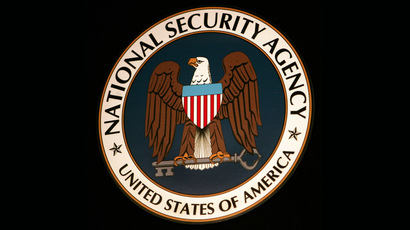Google’s Schmidt: Won’t ‘pass judgement’ on NSA surveillance

It’s not the danger to privacy that worries Eric Schmidt, executive chairman of internet leviathan Google, about the National Security Agency’s vast data collection programs, but the fracturing of the global web that may result, he said on Friday.
Speaking in New York at an event hosted by the New America
Foundation, Schmidt said a “balkanization” of the internet
is his real concern, not violations of privacy from surveillance,
something that’s long been occurring and that he won’t “pass
judgement on.”
"The real danger [from] the publicity about all of this is
that other countries will begin to put very serious encryption – we use the term 'balkanization'
in general – to essentially split the internet and that the
internet's going to be much more country specific," Schmidt
said, according to the Guardian. "That would be a very bad
thing, it would really break the way the internet works, and I
think that's what I worry about. There's been spying for years,
there's been surveillance for years, and so forth, I'm not going
to pass judgment on that, it's the nature of our society."
Though Schmidt did say the mass surveillance his company plays a
major part in -- as part of the NSA’s direct-access PRISM program
as shown by documents provided by Edward Snowden, and as a
leading gatekeeper for internet searches worldwide --
deserves scrutiny, especially given the secretive ways of the
NSA.
"We all have to look at ourselves and say: 'Is this what we
want?'" he said.
Schmidt did repeat his company’s previous denials that PRISM
allows the NSA an unfettered route into Google’s servers. He also
reiterated Google’s call for the US government to allow it and
other affected tech companies to reveal how they comply with
demands from the Foreign Intelligence Surveillance Act (FISA) court, which approves data requests from the
likes of the NSA.
Google has taken legal action, including filing legal briefs as
recently as Monday, to force the FISA court to release more
information about the nature of its relationship with the US
government.
Schmidt has close ties to Obama and his administration. Following
Obama’s 2008 victory, Schmidt became a member of the President’s
Transition Economic Advisory Board, and later won a seat on
Obama's Council of Advisors on Science and Technology. When
Schmidt stepped down as Google’s CEO in 2011, he was
rumored to have been considered for the top positions at the
Departments of Commerce and Treasury.
He served as campaign adviser to Obama in the President’s 2012
reelection bid, helping recruit and coach Obama’s data team that
was heralded for breaking new ground for individualizing the
campaign’s targeted messages and connection strategies.
Schmidt has chaired the New America Foundation’s board since
2008. The nonprofit, nonpartisan think tank is funded by both
private entities and public groups, including the US government.














